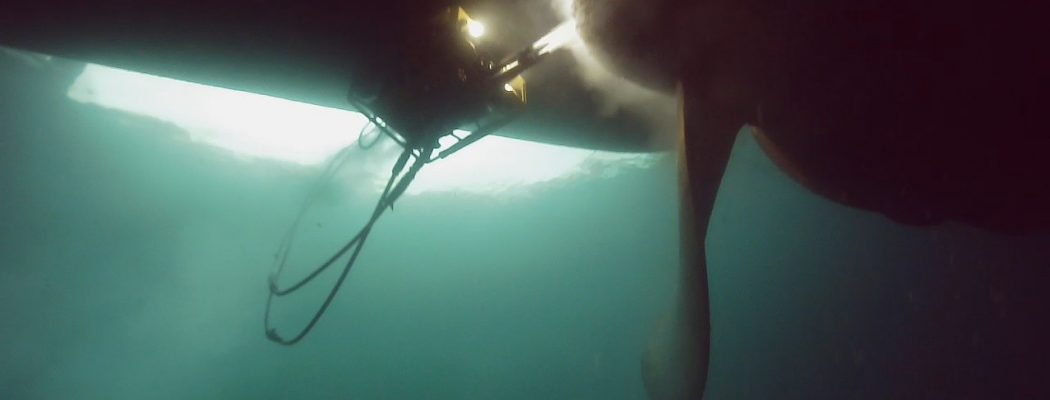Challenges of CO₂ Quotas in Shipping
– and how propeller cleaning by use of ROV addresses the challenges
The introduction of CO₂ quotas in the shipping industry poses several challenges for the sector. These challenges primarily revolve around the financial burden on shipping companies, uncertainty about compliance, and the need for significant operational changes to meet environmental standards. Here’s an overview of these challenges and how propeller cleaning by use of ROV forms a part of the solution.

The industry challenges
Financial Impact: The CO₂ quotas impose additional costs on shipping companies. Large-scale operations, especially major players in the industry, may face substantial financial burdens due to the purchase of CO₂ quotas, potentially running into hundreds of millions of currency units.
Compliance Uncertainty: Despite being aware of the impending CO₂ quota requirements, there remains uncertainty within the shipping industry regarding the exact implications of the new regulations. Questions persist about how the rules will impact individual companies and how they should organize the purchase and submission of quotas efficiently.
Complex Regulatory Landscape: The complex regulatory framework surrounding CO₂ quotas adds to the challenges. Companies need to navigate intricate rules, and there may be a lack of clarity on how best to fulfill the requirements of the quota trading system.
How propeller cleaning by use of ROV addresses these challenges
Enhanced Fuel Efficiency: Clean propellers contribute to reduced friction and resistance as ships move through the water. This directly translates into increased fuel efficiency, helping shipping companies mitigate the financial impact of CO₂ quotas by lowering overall fuel consumption.
CO₂ Emission Reduction: Propeller cleaning is a crucial aspect of reducing CO₂ emissions. By minimizing fouling, algae growth, and corrosion on propellers, ships can operate more efficiently, contributing to a reduction in the overall carbon footprint of the shipping industry.
Operational Optimization: Regular propeller maintenance not only ensures optimal performance but also minimizes the risk of damage and the need for costly repairs. This becomes particularly important in the context of the potential financial strain from CO₂ quotas, as efficient operations and reduced maintenance requirements help control overall expenditures.
Compliance Assurance: Keeping propellers clean aligns with environmental regulations, ensuring that ships can operate within the stipulated CO₂ quotas without incurring penalties. This proactive approach to compliance reduces the risk of facing sanctions, including fines or denial of entry to EU ports.
Propeller cleaning is a vital element in addressing the challenges posed by CO₂ quotas in the shipping industry. It contributes to financial savings, emissions reduction, and overall operational efficiency, aligning with the industry’s efforts to transition towards a more sustainable and environmentally friendly model. Aligning with the industry’s efforts to transition towards a more sustainable and environmentally friendly model.
Request quote her today and reduce emissions, and cut costs!
